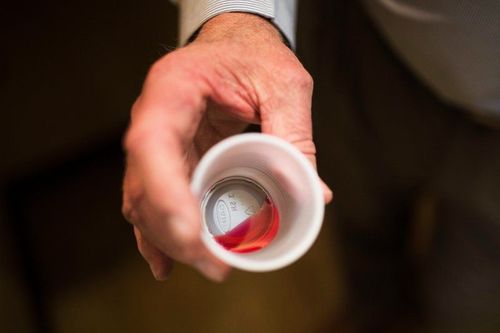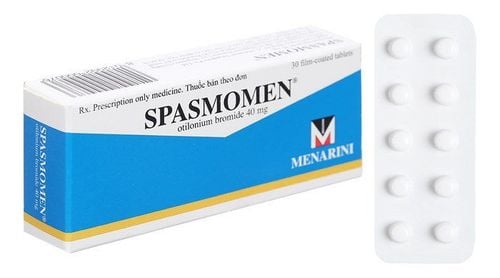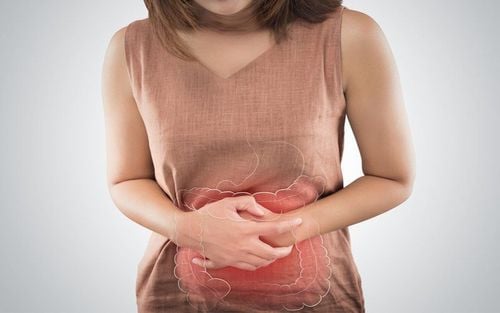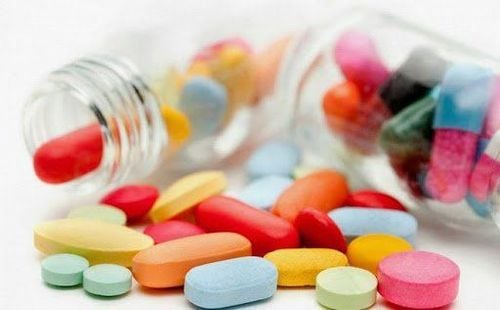This is an automatically translated article.
The article is professionally consulted by resident Doctor Le Thanh Tuan - Department of General Surgery - Vinmec Nha Trang International General Hospital.
Pseudomembranous colitis is a unique disease, often associated with treatment, and has many adverse complications. Let's learn about the disease through the article below.
1. What is pseudomembranous colitis?
Pseudomembranous colitis (also called antibiotic-associated colitis, Clostridium difficile colitis) is an inflammatory condition of the colon that is associated with overproduction of the bacterium Clostridium difficile (C. difficile). ).Overproduction of C. difficile is often associated with a previous hospital stay with antibiotic therapy. C. difficile infections are common in patients over 65 years of age.
2. Symptoms of pseudomembranous colitis

Diarrhea (with very watery stools). Abdominal pain, cramping or physical tenderness. Fever. Mucus or pus-filled stools. Nausea. Loss of water. Symptoms of pseudomembranous colitis can appear very early, only 1 to 2 days after using antibiotics; but it can also be long after antibiotics have ended, months (or even longer) for the onset of illness.
Contact your doctor if diarrhea (even mild diarrhea) occurs while (or has recently been) taking antibiotics. See your doctor as soon as possible if diarrhea is severe, accompanied by fever, abdominal cramps, or mucus or blood in the stool.
3. Causes of pseudomembranous colitis
In the human colon contains many types of bacteria but they coexist peacefully with each other in a balance. The use of medications, including antibiotics, can throw this balance off. Pseudomembranous colitis occurs when certain bacteria (usually C. difficile) grow too quickly to overwhelm other bacteria. The number of toxins secreted by C. difficile bacteria is also much higher, causing damage to the colon.Although any antibiotic carries a risk of causing pseudomembranous colitis, some antibiotics are actually more associated with pseudomembranous colitis than others, including:
Fluoroquinolones, such as ciprofloxacin (Cipro) and levofloxacin. Penicillins, such as amoxicillin and ampicillin. Clindamycin (Cleocin). Cephalosporins, such as cefixime (Suprax). Besides antibiotics, the use of other drugs also sometimes cause pseudomembranous colitis. Drugs used in chemotherapy to treat cancer can also upset the normal balance of bacteria in the colon.
Certain conditions that also affect the colon, such as ulcerative colitis or Crohn's disease, can also lead to pseudomembranous colitis.
The spores of C. difficile are resistant to many common biocides and can be spread by hand. Even C. difficile has been reported in people without any risk factors, including those who did not use medical services or did not take antibiotics in the recent past. These cases are called community acquired C. difficile.
4. Risk factors for pseudomembranous colitis
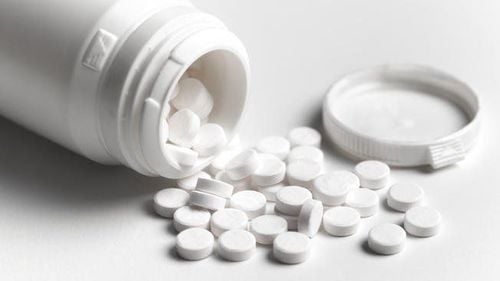
Use of antibiotics. Stay in hospital or medical facilities. Elderly, especially those over 65. Have a weakened immune system. Have had colon disease, such as ulcerative colitis or colorectal cancer. Have undergone gastrointestinal surgery. Being treated for cancer with chemotherapy.
5. Complications of pseudomembranous colitis
Treatment of pseudomembranous colitis is usually successful, but even with prompt diagnosis and treatment, pseudomembranous colitis can be life-threatening. Possible complications include:Dehydration: Severe diarrhea can lead to severe dehydration and electrolyte loss. This makes it difficult for the body to function properly and dangerously low blood pressure can occur. Kidney failure: In some cases, dehydration can progress very quickly, causing kidney function to decline rapidly. Toxic megacolon: This is a rare situation where the colon doesn't have a peristalsis to push stool and air down, causing them to stagnate and cause the colon to expand (colloidal distention). If left untreated, the enlarged colon can rupture, causing an infection of the abdominal cavity. Colonic aneurysm (and ruptured aneurysm) is a surgical emergency requiring surgical intervention, as it can be life-threatening. Colonic perforation: This is also a rare complication and is the result of extensive damage to the colon or of toxic megacolon. Colonic perforation allows bacteria from the colonic lumen to enter the abdominal cavity and cause peritonitis. Death : Although C. difficile infection is only mild or moderate, if not treated promptly, it will progress very quickly and can lead to death. Besides, pseudomembranous colitis sometimes recurs, It can be days or even weeks after successful treatment.
6. Diagnosis of pseudomembranous colitis
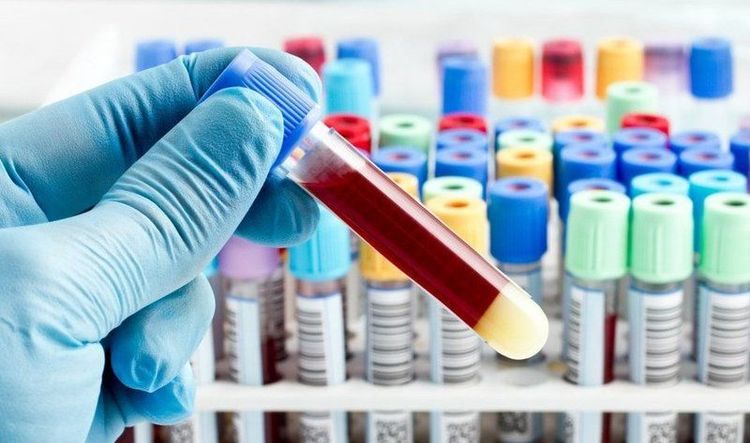
Stool tests: There are different types of stool tests to detect C. difficile infection in the colon. Blood tests: Blood tests can identify ongoing inflammation. Whole colonoscopy or sigmoidoscopy: Through endoscopy, the doctor can determine the inflammation of the colon through signs of damage. Diagnostic imaging: The doctor may order an X-ray of the abdomen, or a computed tomography scan of the abdomen to look for complications of the disease.
7. Treatment of pseudomembranous colitis
Therapeutic strategies for pseudomembranous colitis include:Discontinuation of the antibiotic or medication that is causing the signs and symptoms (if possible). Use of antibiotics that are effective against C. difficile: Antibiotics can be administered through different routes of administration (oral, intravenous, ...) and the drug is selected for resistance. C. difficile such as metronidazole (Flagyl), vancomycin, fidaxomicin (Dificid),... Fecal microbial transplantation (FMT): Performed in very serious cases. Surgery: When there are complications such as colonic aneurysm, colon perforation, ...
8. Prevention of pseudomembranous colitis

To prevent pseudomembranous colitis, infection prevention measures for C. difficile (and infection prevention in general) should be followed closely. Measures include:
Hand washing: Perform hand washing at recommended times of infection prevention. Isolate the patient. Perform sterilization carefully to destroy spores of C. difficile. Do not abuse antibiotics, only use antibiotics as prescribed by your doctor. Dr. Le Thanh Tuan has experience in examination, treatment and surgery of abdominal pathologies (both open surgery and laparoscopic surgery). In particular, the doctor has strengths in pediatric surgery to treat diseases such as: intussusception, appendicitis, inguinal hernia, postpartum malformations (fetal peritonitis, megacolon, no anus).
Please dial HOTLINE for more information or register for an appointment HERE. Download MyVinmec app to make appointments faster and to manage your bookings easily.
Reference source: mayoclinic.org




